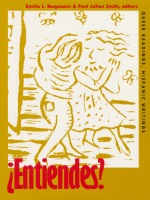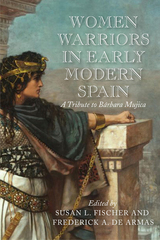
Emilie Bergmann discusses the poetic tradition of ekphrasis, the description of visual works of art, from Garcilaso de la Vega to Sor Juana Inés de la Cruz. The first two essays give a historical perspective: Lope de Vega reflects a traditional hierarchical view of the artist in harmony with the divine creator, while the controversial Luis de Góngora projects a Promethean image.
The remaining three essays concern the relationship between verbal and visual systems of signs: Góngora and Paravicino write inscriptions upon the work of El Greco; Lope and Góngora interpret allegorical paintings, and several Baroque poets exploit the possibilities of the Petrarchan portrait. Dr. Bergmann demonstrates that ekphrasis exposes the boundaries between the arts and the limitations of artistic imitation, while using that limitation as a source for poetic wit.

Combining intimate knowledge of Spanish-speaking cultures with contemporary queer theory, these essays address texts that share both a common language and a concern with lesbian, gay, and bisexual identities. Using a variety of approaches, the contributors tease the homoerotic messages out of a wide range of works, from chronicles of colonization in the Caribbean to recent Puerto Rican writing, from the work of Cervantes to that of the most outrageous contemporary Latina performance artists. This volume offers a methodology for examining work by authors and artists whose sexuality is not so much open as "an open secret," respecting, for example, the biographical privacy of writers like Gabriela Mistral while responding to the voices that speak in their writing. Contributing to an archeology of queer discourses, ¿Entiendes? also includes important studies of terminology and encoded homosexuality in Argentine literature and Caribbean journalism of the late nineteenth century.
Whether considering homosexual panic in the stories of Borges, performances by Latino AIDS activists in Los Angeles, queer lives in turn-of-the-century Havana and Buenos Aires, or the mapping of homosexual geographies of 1930s New York in Lorca’s "Ode to Walt Whitman," ¿Entiendes? is certain to stir interest at the crossroads of sexual and national identities while proving to be an invaluable resource.

Published by University of Delaware Press. Distributed worldwide by Rutgers University Press.
READERS
Browse our collection.
PUBLISHERS
See BiblioVault's publisher services.
STUDENT SERVICES
Files for college accessibility offices.
UChicago Accessibility Resources
home | accessibility | search | about | contact us
BiblioVault ® 2001 - 2024
The University of Chicago Press









